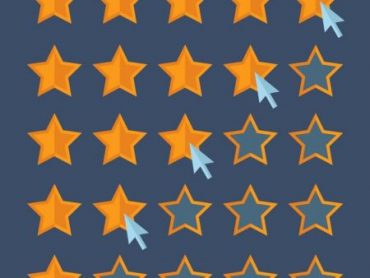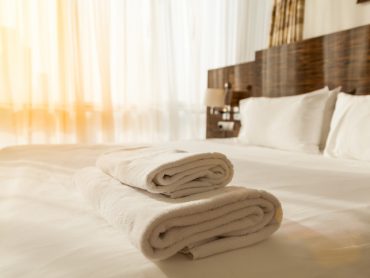Verified Clean Technologies as the Necessary Step to Bring Groups Back
Staycations and drive-market getaways have become the going trends to help revitalize leisure travel for a summer season where we are still battling COVID-19. But most hotels don’t build and grow rate from fully independent travelers alone, nor can they keep their ledgers in the black without midweek occupancy during off-peak periods. We all need to make groups travel again; the question is how.
To answer this, hoteliers must empathize with the current plight of company managers, event planners, conference organizers or anyone else involved in authorizing a room block reservation. They all want to host meetings, weddings, tradeshows and so on as one simply cannot network as effectively or celebrate an extraordinary moment in time when we are all apart. But for this other half of all group contracts, there is still a huge amount of risk in bringing people together – too much to warrant signoff.
As many large-scale gatherings have now been traced back to be ‘super-spreader events’, just imagine, for instance, that you are a couple hosting your wedding and upwards of a quarter of your guests end up testing positive within 14 days after the wedding. This isn’t something anyone wants on their conscience. Take this a step further, though, where corporate executives have a duty of care to protect their teams from harm. In such cases, not only would an employee contracting the virus while traveling to an event for work represent a moral and reputational blow for the company, but it may also turn into a lawsuit, which can multiply quickly if the employee infects other employees after returning from a business trip.
So, from a purely risk management point of view, there would have to be a very strong argument made in favor of endorsing an event and a host hotel in our present situation. While obviously much of this Covid-safety factor is being solved by government actions, the airlines, the distribution of a vaccine and other industries doing their part, our roles are still instrumental in restoring confidence in group travel.
Practically all properties worldwide have taken some measures to heighten cleanliness, sanitization and physical distancing to reassure guests, but this may not be enough for groups. Namely, there’s no express guarantee that all the necessary precautions have been followed correctly or as frequently as the property has indicated. To verify that a space is clean and therefore safe, what groups need are technologies to audit, enforce and display compliance.
And this can only be solved through the deployment of new technologies that may include hardware and software to track a hotel team’s adherence to the required specifications of what areas were cleaned, for how long, with what equipment and how often. Our teams must stay lean in order to maintain a feasible budget, so data and automation are essential to supervise all these touchpoints.
To explain this in more depth, Parminder Batra, CEO of TraknProtect, a real-time location solution provider which just launched its new TraknKleen™ product, added, “It’s not just a matter of delivering on all the new cleanliness initiatives and measures. It’s that a property may be automatically excluded from a group’s consideration without the underlying technologies in place to guarantee that those measures are precisely administered and certified completed. Hotel managers need alert systems to monitor then rectify any infractions, while travel planners may not feel confident enough without an electronic record and audit trail of all cleaning activities.”
This thought about consideration is also being reflected in internet travel search and aggregate services, with new features that motivate guests who prioritize cleanliness and sanitization above price or onsite amenities. Prominently to this end, TripAdvisor has recently launched a filter for users to narrow hotel queries by the safety measures that have been put in place, along with validation as part of the review process. Expect similar features to be unveiled for the OTAs and other meta search websites.
What this means for groups is that if you aren’t keeping pace with the current guidelines – and enforcing them – your property may be out of the running well before a decision is to be made on where to book and host the event. For instance, a travel planner may cross-reference any hotel bid against the TripAdvisor safety filter to check not only for the property’s level of compliance but what past guests have noted. Any cited errors may generate skepticism and thus jeopardize the negotiation.
But this also can be a worthy method to protect average daily rate because, in today’s spooked travel climate, groups will be inclined to pay more for a ‘verified clean’ hotel. As previously stated, the only way to truly deliver on an onerous guarantee of this nature is to deploy various technologies to support – as well as audit – your housekeeping services. Especially as our teams will have to stay lean for quite some time moving forward, you can’t simply have room inspectors and supervisors monitoring every staffers in a one-to-one ratio akin to some Big Brother environment; you have to let technology automate as much of the blocking and tackling as possible.
As for specifics, there are already a few management software companies with new modules to address the particular concerns brought up by Covid – ALICE, PurpleCloud and StayNTouch as three examples. These can be deployed to supply viral safety checklists, manage PPE inventory, document contact tracing records, regulate room cleaning buffers, sequester teams for heightened social distancing and provide a myriad of other features. On the hardware front, products like TraknKleen™ use IoT-enabled staff cards and inventory tags to log an audit trail of housekeeper movements and room cleaning details, thereby ensuring the execution and delivery of the ‘new normal protocols’ in a property’s housekeeping standard operating procedures.
While to some this may seem a bit too 1984, steps are being taken by all vendors to ensure data aggregation and anonymization. With staffers workflow uninterrupted, these technologies definitely merit further investigation so that any property can spotlight its verified clean status to help give groups peace of mind and spur them to book.




